"I Grow Watermelons on Rooftops and at Heights of Many Stories"
Growing lettuce on the roof, planting cucumbers on the balcony, and nurturing a vegetable garden without any soil. Daniel Rechtman, a 26-year-old entrepreneur, cultivates gardens around the country using the 'hydroponics' method.
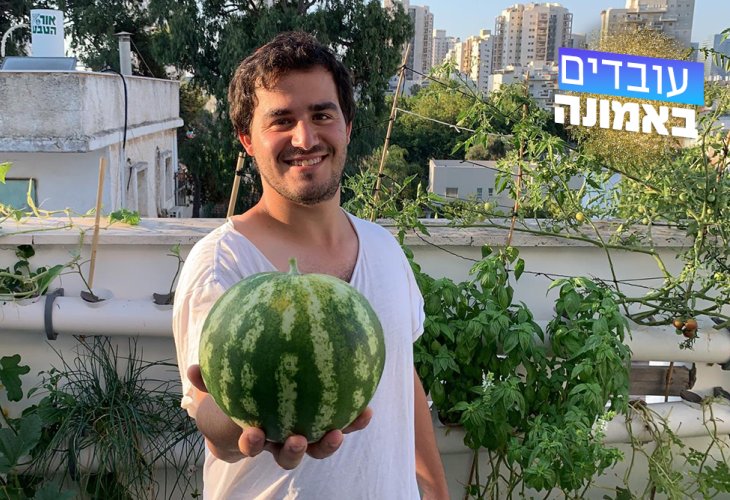 Daniel Rechtman
Daniel RechtmanHe is just 26, a student on his way to completing his master's degree in social work, but in his spare time, you can see him growing vegetable gardens on rooftops and balconies of buildings, some as high as 18 stories or more.
Meet Daniel Rechtman, who engages in the bizarre and wondrous technique of growing vegetables and plants using only water, without soil. We asked him to tell us how he does it, and it turns out to be nothing short of fascinating.
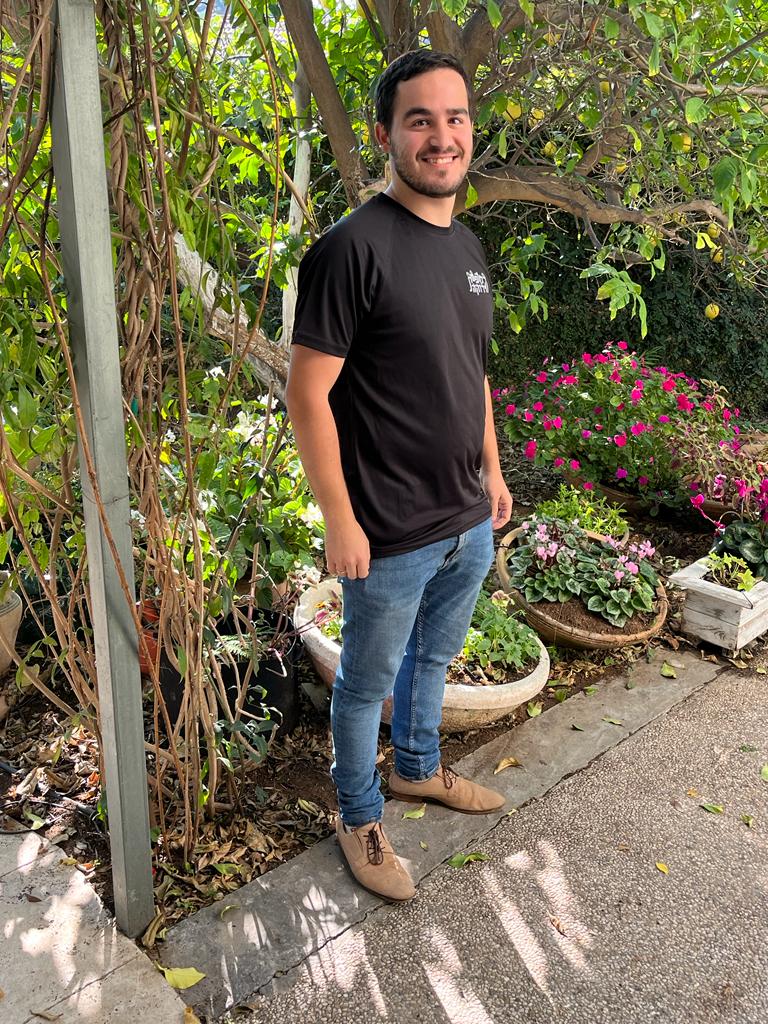
A Dream Turned Reality
"It all started from the fact that for years I usually lived in apartments with balconies but without ground connection," Daniel recounts. "I always regretted not being able to grow plants like I love, but I didn't think about giving up. I read and researched the subject quite a bit until I was exposed to the field of 'hydroponics' — it’s a special technology that allows plants to grow on water even in places like balconies or high floors. At that time, I was so excited about the discovery that I started personally growing all kinds of plants in water, read books and articles on the subject, and acquired a lot of knowledge in the field."
About a year ago, Daniel decided to share his knowledge with others and began offering his services under the slogan 'Green Balcony' to more families. "I never dreamed the demand would be so great," he notes, "and over the past year, more than 200 families reached out to me to grow fresh, delicious vegetables on their home balcony. I helped them set up the basic system, recommended vegetables suitable for hydroponic growth, such as tomatoes, cucumbers, peppers, zucchinis, cilantro, cabbage, cauliflower, lettuces, and more. Initially, it sounds illogical: how can you grow vegetables on a high-rise balcony or even on a roof without a bit of soil or direct ground connection? But that’s the unique thing here, because it’s possible."
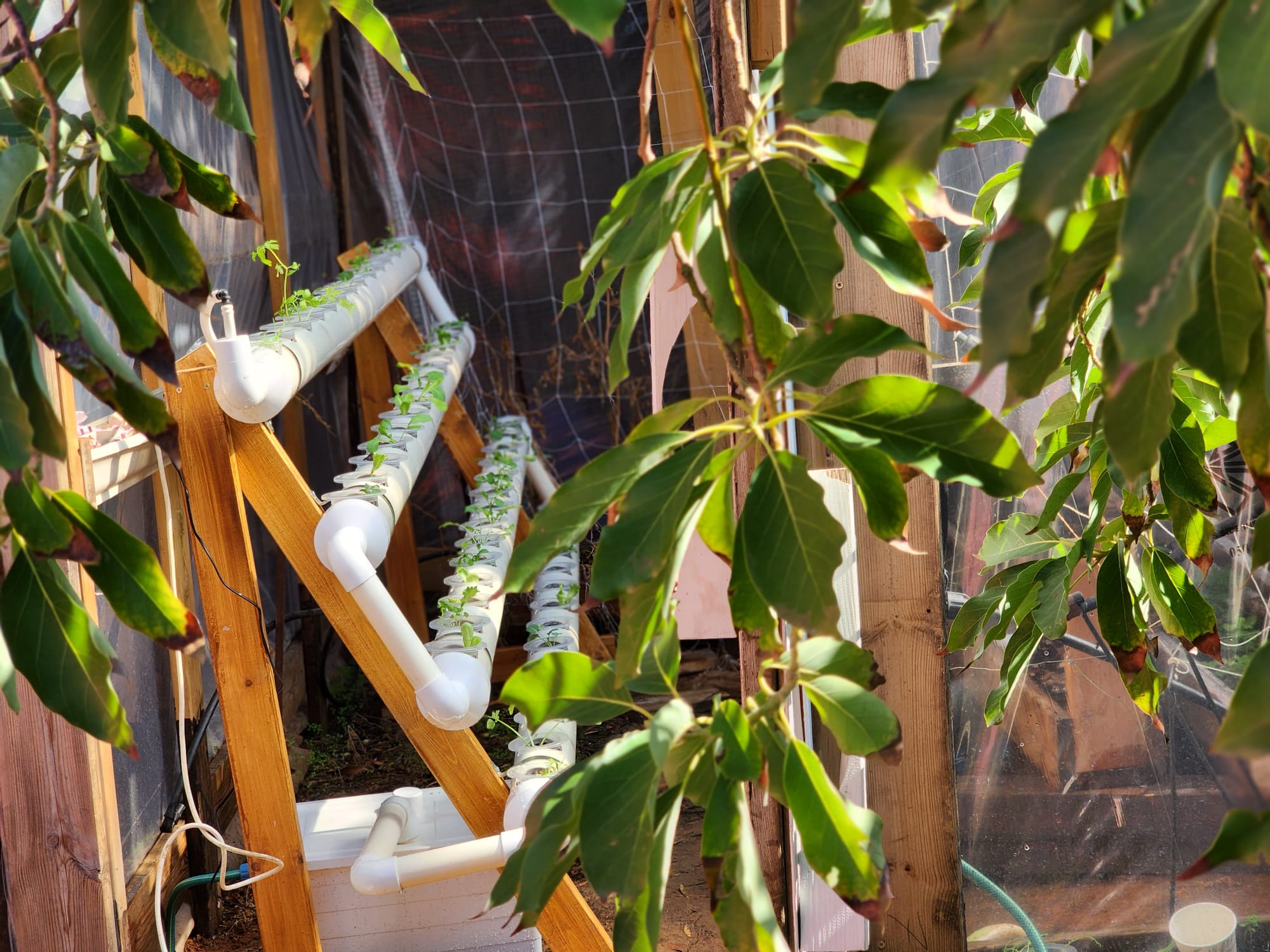
Would you share the secret with us - how do you actually do it?
"Hydroponics is a method that allows growing plants on just water and fertilizer, with no use of soil. It can be done in various ways, but personally, I use pipes leading to a water reservoir that contains a pump — the pipes exit the reservoir and return to it, thus providing the plants with all they need to grow. Beyond the great advantage of not needing a ground connection, gardeners also benefit from cleaner growth, fewer pests, and no need for weeding or manual irrigation. By the way, there is no limit to the number of plants that can be grown using the hydroponics method — you can decide on a small corner on the balcony or an entire rooftop filled with plants and vegetables of all kinds. People are really amazed when they realize their dream of a home vegetable garden can come true. They send me pictures in the morning as they pick tomatoes and cucumbers for their salad. Some even plant watermelons and melons. It's really amazing."
The Method and the Halacha
How long has the hydroponics method been known?
"The method has existed for a long time. It reached Israel even before the establishment of the state, but it was notably utilized in 1952. It was a Shmita year, and members of Kibbutz Hafetz Haim, most of whom were religious pioneers, wondered how they could grow vegetables during Shmita. They directed the question to the Chazon Ish, who was told that one of the kibbutz members suggested the idea of hydroponics, since, being water-based, it seemed possible even during Shmita. The Chazon Ish set conditions for these crops to be grown on water without any soil, and with a concrete barrier underneath. Thus, the hydroponics field developed at Kibbutz Hafetz Haim. By the way, over the years, this topic was often brought up in halachic discussions; Rabbi Ovadia Yosef, of blessed memory, raised the question of whether one should recite the 'blessing of the ground' or 'shehakol' on such vegetables, as they technically don't grow from the ground. Ultimately, he decided the 'blessing of the ground' should be recited, but the discussion itself is very intriguing.
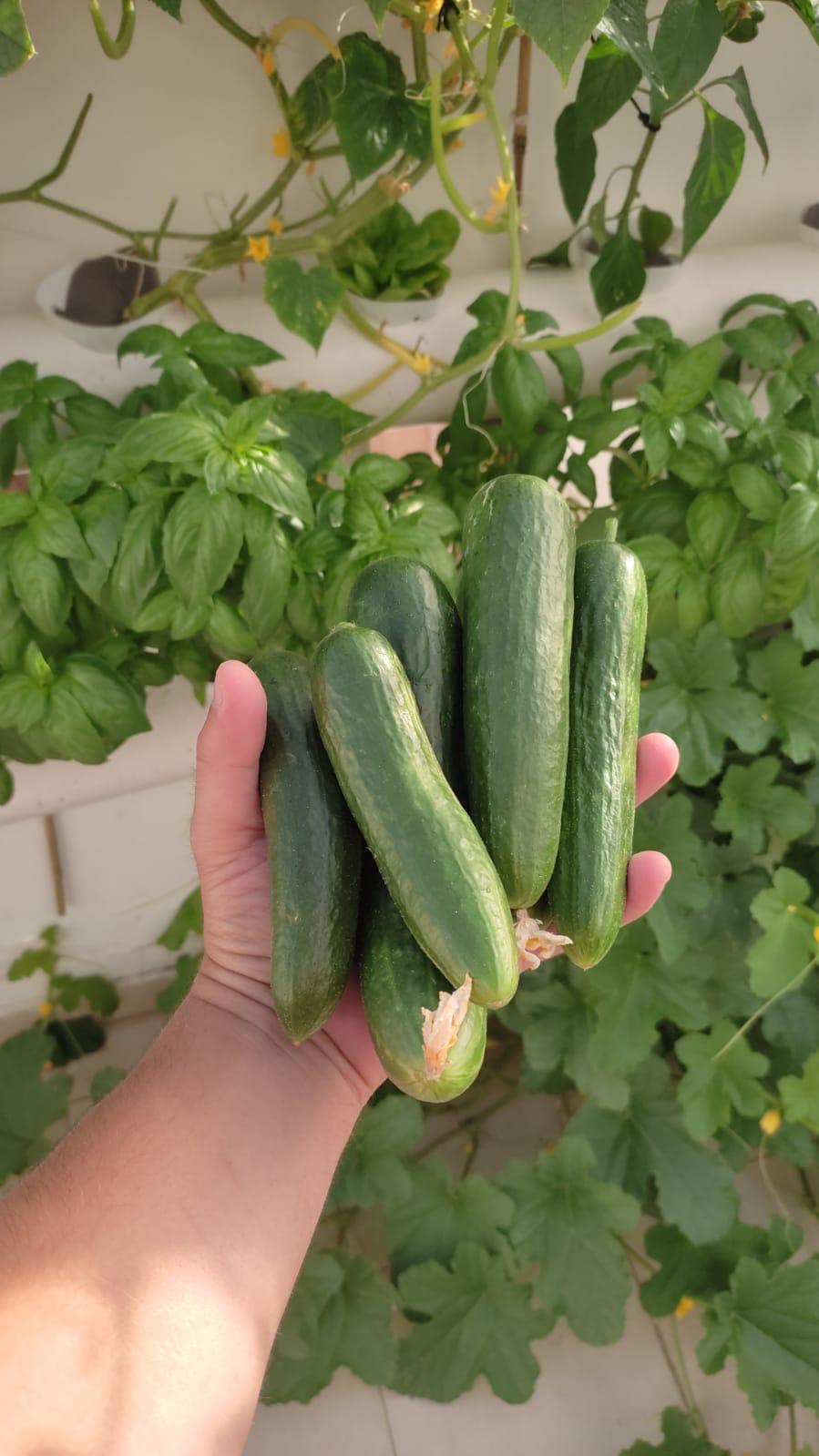
"Personally, I feel a direct connection to the subject because my grandfather, a Holocaust survivor from Hungary, lived in Kibbutz Hafetz Haim in the early years of the state, and the fact that I am involved in this field today feels like a kind of closure."
But how is it possible to grow plants without soil? What is the technological explanation for that?
"The inventors of hydroponics discovered that plants don't really need soil as much as they need the materials within it. If you put those materials in the fertilizer and water that are given to the plants, then the plants receive everything they need in a very precise manner. This is also the reason, by the way, that plants grown in such a system grow faster. In a month, you can already see cucumbers, lettuces, eggplants, peppers, and tomatoes growing."
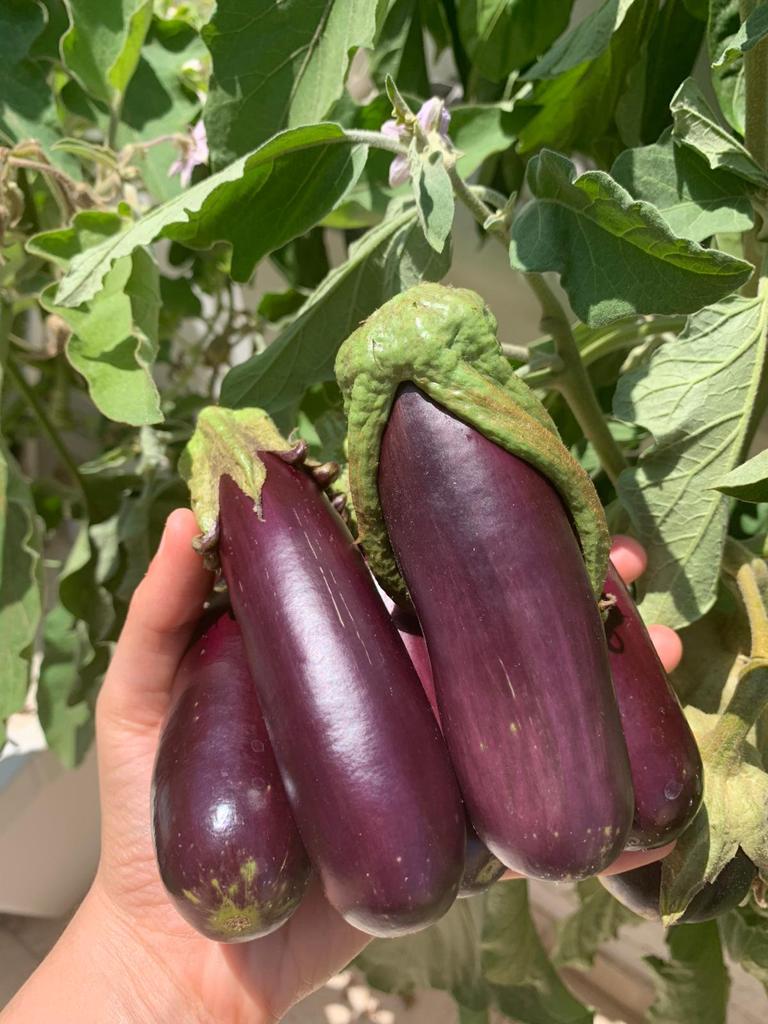
Everything sounds great, but how come the plants aren't damaged by such a large amount of water? After all, it's known that plants can die from overwatering!
"That's true, but since the water in this system is constantly in motion, the plant receives oxygen continuously, preventing any damage. Of course, there is always the concern of a power outage, which could harm the plants, but generally, power outages in Israel are not so significant, and let's not forget that with soil cultivation, there's a risk of insufficient rainfall or other natural disasters."
And what is the highest story where you have installed such a system?
"I have had the opportunity to reach penthouses and rooftops 18 and even 21 stories high. I also visited interesting places like businesses that wanted to create a beautiful green wall facade and kindergartens where the teachers wanted to allow the children to observe the plant growth process up close, and of course, there are also many private individuals."
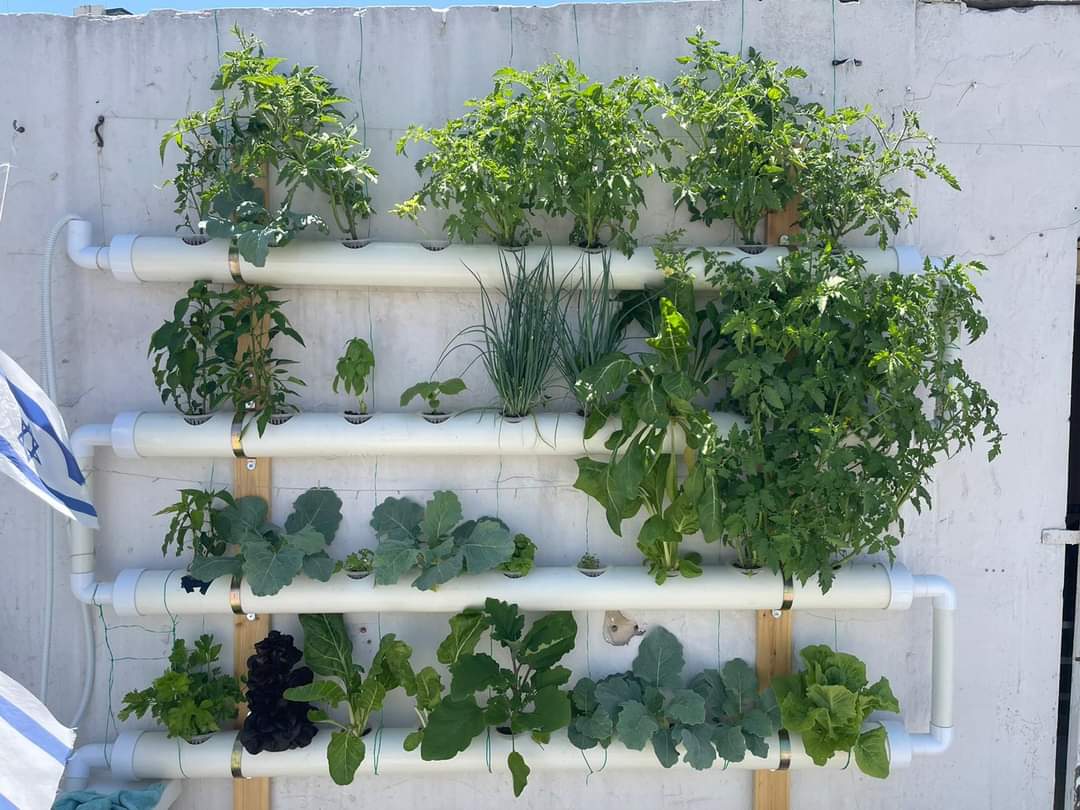
And we can't help but ask — are there any plants you can't grow using this method?
"Yes, of course, not everything is perfect. There are certain plants for which water-based growth is not suitable, such as hyssop, za'atar, and others, and currently, large trees cannot yet be grown using this method. But generally speaking, most vegetables can definitely be grown hydroponically, and today many people believe the world is moving towards this method, and as the years go by, we'll encounter it more and more."

